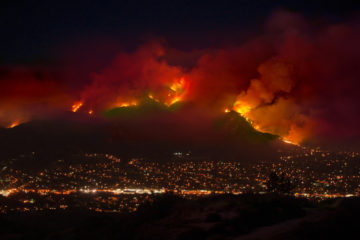NEW YORK – Global emissions of carbon dioxide were at a record high last year and are likely to take a similar jump in this year, scientists have reported, in the latest indication that efforts to limit such emissions are failing.
Emissions continue to grow so rapidly that an international goal of limiting the ultimate warming of the planet to 2°C, established three years ago, is on the verge of becoming unattainable, said researchers affiliated with the Global Carbon Project.
Dr Josep Canadell, a scientist in Australia who leads that tracking programme, said that salvaging the goal, if it can be done at all, “requires an immediate, large and sustained global mitigation effort”.
Yet nations around the world, despite a formal treaty pledging to limit warming, have shown little appetite for the kinds of controls required to accomplish those stated aims.
Delegates from nearly 200 nations are meeting in Doha, Qatar, for the latest round of talks under the treaty, the United Nations Framework Convention on Climate Change.
However, little progress is expected, especially on a protocol that is supposed to be concluded in 2015 and take effect in 2020.
Ms Christiana Figueres, Executive Secretary of the climate convention, said that while the global negotiations were necessary, they were not sufficient to tackle the problem “until enough domestic legislation and action are in place”.
Global emissions jumped 3 per cent last year and are expected to jump another 2.6 per cent this year, researchers reported in two papers released by scientific journals last Sunday.
The level of carbon dioxide has increased about 41 per cent since the beginning of the Industrial Revolution.
Scientists say further increases in carbon dioxide are likely to have a profound effect on the climate, leading to higher sea levels and greater coastal flooding, more intense weather disasters and an extreme acidification of the ocean. The earliest effects are already being seen, experts believe, but they are projected to worsen.
The New York Times


